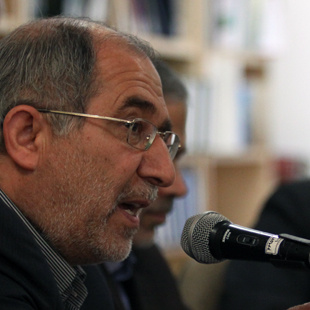Iran and the Persian Gulf Arab States

During the rule of Mohammad Reza Pahlavi in Iran, Washington relied on the Shah’s military power to enforce security in the region. In fact, since the early 1970s, Iran’s maritime and air forces were tailored to the Americans’ security interests in the region. Five important air bases in central and southern Iran during the Pahlavi era were located in the cities of Bushehr, Konarak, Omidiyeh, Shiraz and Esfahan. It was planned that the Konarak air base, in Sistan-va-Baluchestan province, would turn into the largest regional air base, and the regime was planning to purchase advanced navy ships from Washington to guarantee security in the Persian Gulf.
The Americans received a powerful blow by losing the Shah, and they had to pay a heavy price in compensation. After the first Persian Gulf War, the United States set up its headquarters and Fifth Fleet in Bahrain, and decided to muster the military power of the littoral states and regional geopolitical capacities to reinforce the Persian Gulf’s security.
Logistic and military bases in Qatar, Bahrain, and Saudi Arabia, plus the marine and air force power of these countries have been augmented since Iran’s 1979 Revolution. The Persian Gulf holds the richest sources of energy in the world, some of them yet untapped, which can be cost-effectively and immediately exploited and exported. This is a fact Westerners –particularly Americans as one of the main energy consumers- are more cognizant of than regional energy producers.
The fissure between Iran and its southern neighbors is the most critical vulnerability of the Persian Gulf which can be abused by extra-regional powers. Navigation routes were safe before Iraq waged a staunch war against Iran. Saddam Hussein’s indiscriminate deposition of mines even compelled the Americans to conduct mine-sweeping operations in the waterway. The Persian Gulf can be made insecure with the simplest of weapons, while preserving its security requires great effort.
A cooperative framework is the best approach to regional security in this body of water. But there are serious disputes which need to be resolved at first. A perpetuating factor for these disputes is that Washington (and not regional states) is the main decision-maker for the Persian Gulf, and it foils efforts in proximity between Iran and the Arab countries.
Labeling this body of water is another big problem. While historical documents trace back the name “Persian Gulf” to at least 2000 years ago, Arab countries have tried to replace this traditional nomenclature with the false term “Arabian Gulf”. This gulf has preserved its Iranian identity throughout history and its southern coasts have been either a part of its territory or in its sphere of influence. Gamal Abdel Nasser was the first Arab leader whose fervent pan-Arabism led him to promote the term “Arabian Gulf”. Since their conflicts with Iran began, the Americans have refused to support Iran’s rights on this issue.
The Triple islands of the Persian Gulf are another problem. We should once and for all solve this dispute and put an end to the UAE’s claims. A non-military, economic approach seems to be the best way to serve our interests. What I suggest is establishing three large cities in the name of our great poets Ferdowsi, Hafez and Sa’di in Abu Musa, Greater and Lesser Tunbs, and turning them into vibrant trade hubs for Iranians. These islands have no civilian residents and lack recreational, touristic and economic potentials, and as such they give voice to UAE’s claims. The triple islands are strategically significant for our national security.
Geopolitically, Iran is the most powerful country in the region. The Americans are trying to simulate Iran’s potentials in other countries. The large airports of Dubai have taken away from Iran its transportation capacity, while Iran hosts the most convenient transit route from neighboring countries. The Caspian Sea’s capacities have been also taken away from Iran and given to Azerbaijan and Turkey. Unfortunately, Iran’s main volume of imports comes from Dubai. This is a catastrophe. Iran should be the key marine force of the region. But what we see is that maintenance operation of ships has moved to the southern coast of the Persian Gulf. We need further initiatives, such as tying Iraq’s economy to our coast, so that this country always favors a secure Iran.
* Hossein Ala’ei is the former commander of the Revolutionary Guards Navy, and a strategic affairs analyst.

